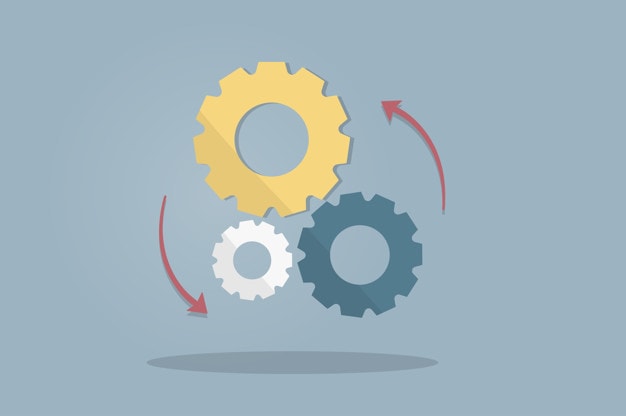When math and psychology are adeptly used for analyzing, organizing, managing, and leveraging complex decision, it is understood as Analytic Hierarchy Process or AHP.
Working of AHP revolves around three different steps-
- The ultimate problem or objective you have to solve
- All the different possible and best-suited solutions known as alternatives
- The criteria upon which you would prefer judging the alternatives
By using Analytic Hierarchy Process, you will have a rational framework at your disposal to make the right decisions by dexterously quantifying all the criteria and alternatives, so you can relate all the key elements necessary for accomplishing the overall goal.
In this post, we will dive deep into the world of AHP and help you understand how it works and how you can use it for easing down your decision-making procedures. So, let us start unraveling the world of Analytic Hierarchy Process-
Table of Contents
Introduction to the Analytic Hierarchy Process
Decision making is an important aspect when it comes to planning a bright future. Your current decision can lead to peace or destruction for your future, as well as your coming generations.
But the decision-making process in business or work carries a significant number of complexities. The toughest job in today’s time is undoubtedly making the right decision.
It becomes quite difficult for a person to take up the right option when he has to handle a group of opinions and then make a decision.
From making decisions for your profit to choosing the best option for achieving your project goals, both carry an equal amount of stress. But there are many methodologies out there which one can use to make this task easy.
One such famous methodology is the Analytic Hierarchy Process- a method famous for making complex decisions easy. From problem structuring to evaluation to making choices, AHP is going to be highly effective in providing befitting solutions for your issues.
What is Analytic Hierarchy Process?
The analytic hierarchy process is a well-known technique used for making complex decision making simple by taking help from mathematics and psychology.
Thomas L Saaty, a renowned university professor at one of the leading universities, The University of Pittsburgh, was brought into use.
Analytic Hierarchy strives to design a whole structure of the problem, highlighting different goals and alternatives to accomplish the goals.
Thus, it won’t give you one correct decision, but a lot of choices for you to choose from!
It is one of the best ways to implement a project you take up in your hand. Different steps involved in AHP working are-
1. Problem Structuring
In this, defining decision problem and goal is done. Then, it revolves around finding out and structuring decision criteria and related alternatives.
2. Evaluation
Judgments of the relative value of the different alternatives on every decision criterion, along with the judgment of relative importance of decision criteria, are the key practices of this step of AHP.
Later it revolves around the group aggregation of the judgments and inconsistency analysis of the judgments.
There are many benefits of using the Analytic Hierarchy Process for making a collaborative decision.
3. Choice
In this step, the calculation is done concerning the weights and priorities of different alternatives and criteria. It also revolves around conducting sensitivity analysis.
Benefits of AHP in making collaborative decisions
Scientists have come up with many methods you can use to make the right decision, but the Analytic Hierarchy Process still stands out of the crowd because of:
1. A proven formula
It is one of the oldest and most trusted decision-making methodologies that many companies have been using to carry out their decisions.
2. Many uses
If you look at the uses of the Analytic Hierarchy Process, you will find that various organizations have used different decision-making problems.
There are many applications of the AHP available. Some of the key uses of the Analytic Hierarchy Process are-
- Project prioritization and selection
- Site selection (“Where you should design your new warehouse/road/airport?”)
- Procurement
- Technology selection
- Evaluating different design options
- Strategy development
- Stakeholder engagement (for deciding product roadmap, for finalizing the location of an airport or for assisting the government in making policy)
- Hiring
- Trade studies
3. Easy to use
The software is easy to use. Most importantly, you can explain how the software works, making people believe in the decisions taken by it.
However, suppose we talk about the recently launched methodologies.
In that case, you will find that most of them have a complex working system making it quite challenging to understand how the results have been generated.
4. Offers many criteria
When deciding between two subjects, you often take up many multi-criteria for generating the results. But most of the software doesn’t offer you the feature of different application criteria.
You don’t have to worry about this in Analytic Hierarchy Process as it comes with the Multi-criteria option.
5. Choosing the importance of particular criteria
When working with the multi-criteria feature, you might often face a problem in assigning the priority value to particular criteria.
This has been made easy by the Analytic Hierarchy Process as it:
- Asks every individual which criteria for him is more important and by how much
- Once the results have been generated about the different preferences of individuals, you can review the comparisons and discuss the values you can allot to a criterion.
- Your approved values for the different criteria are then converted to algorithms.
Thus the software helps you out in making a collaborative decision on choosing the priority of a criterion.
6.Checks on consistency
We can sometimes be inconsistent in providing the data to the AHP software.
But the software works efficiently in checking out the inconsistent data and making you aware of the same. Thus, you can see that the analytic hierarchy process can be beneficial for people working in projects and collaborative firms.
But there are many more features of the analytic hierarchy process than just project prioritization.
Additional Applications of Analytic Hierarchy Process
Since you now have an idea about how analytic hierarchy can help you out with some of the most complex decisions, let us now look at the working of this application
1. Choice
AHP is used for choosing one option from a given set of choices, mainly at the places where there are various decision criteria included.
2. Ranking
The analytic Hierarchy Process involves putting a lot of choices all together from most to least attractive options.
3. Prioritization
AHP is involved in determining the general value of key members from a lot of choices, rather than choosing a single one or just positioning them.
4. Resource designation
AHP does apportioning assets among a lot of given options.
5 Benchmarking
The analytic hierarchy process revolves around comparing the procedures in one’s own company with those of other best-of-breed associations.
6. Quality management
AHP is involved in dealing with the multidimensional parts of value and value improvement
7. Conflict goal
Analytic Hierarchy Process is also useful in settling disputes between parties with clearly contradictory objectives or positions
How Does Analytic Hierarchy Process work?
The working of this application is quite easy to understand. You just need to set up the specific goals of your decision-making process.
These goals get automatically translated to criteria carrying value.
The application shows you pairs of criteria in which you need to choose the more important rule for you.
Moreover, the application helps you have a check on what your team members feel about the criterion.
It was thus helping you to hold discussion over the different opinions of your team members, and yield a prevalent prioritization of criteria.
There are many methodologies available that give you such features of decision making, but AHP serves as unique software because of its ability to list up paired criteria.
Final Thoughts!
Analytical Hierarchy Process serves as an essential tool for making good decisions. It helps you gain the right direction towards the achievement of your goals and helps you out in collaborative choices.
Despite its vast popularity, it has a significant drawback of presenting many pairs of criteria, making it quite annoying when you are sitting with some senior executives.
However, compared to other software, it still serves as an out of the box option for decision making. I would like to conclude by highlighting that AHP is very useful in comparing and ranking different ideas against each other so that you can opt for the best ideas.
What are your thoughts about the Analytic Hierarchy Process in finding out the best-suited solutions?
Do you think that AHP is effective in organizing, analyzing, and alleviating complex decision-making processes? Share your views with us in the comment section below.
Liked this post? Check out the complete series on Decision Making



Ninad gay h
And jay and aksht ka gar samband h
Ninad gay h
And jay and aksht ka gar samband h
abe tho tum bhi maderchodh
Ninad gay h
And jay and aksht ka gar samband h
abe tho tum bhi maderchodh
and you mf motherfucker should add a dislike button